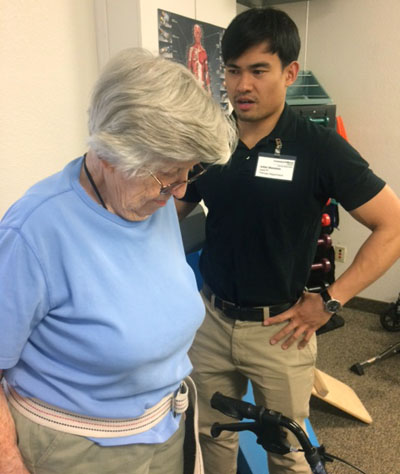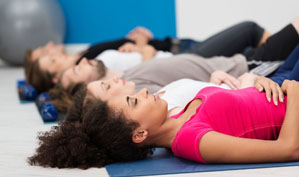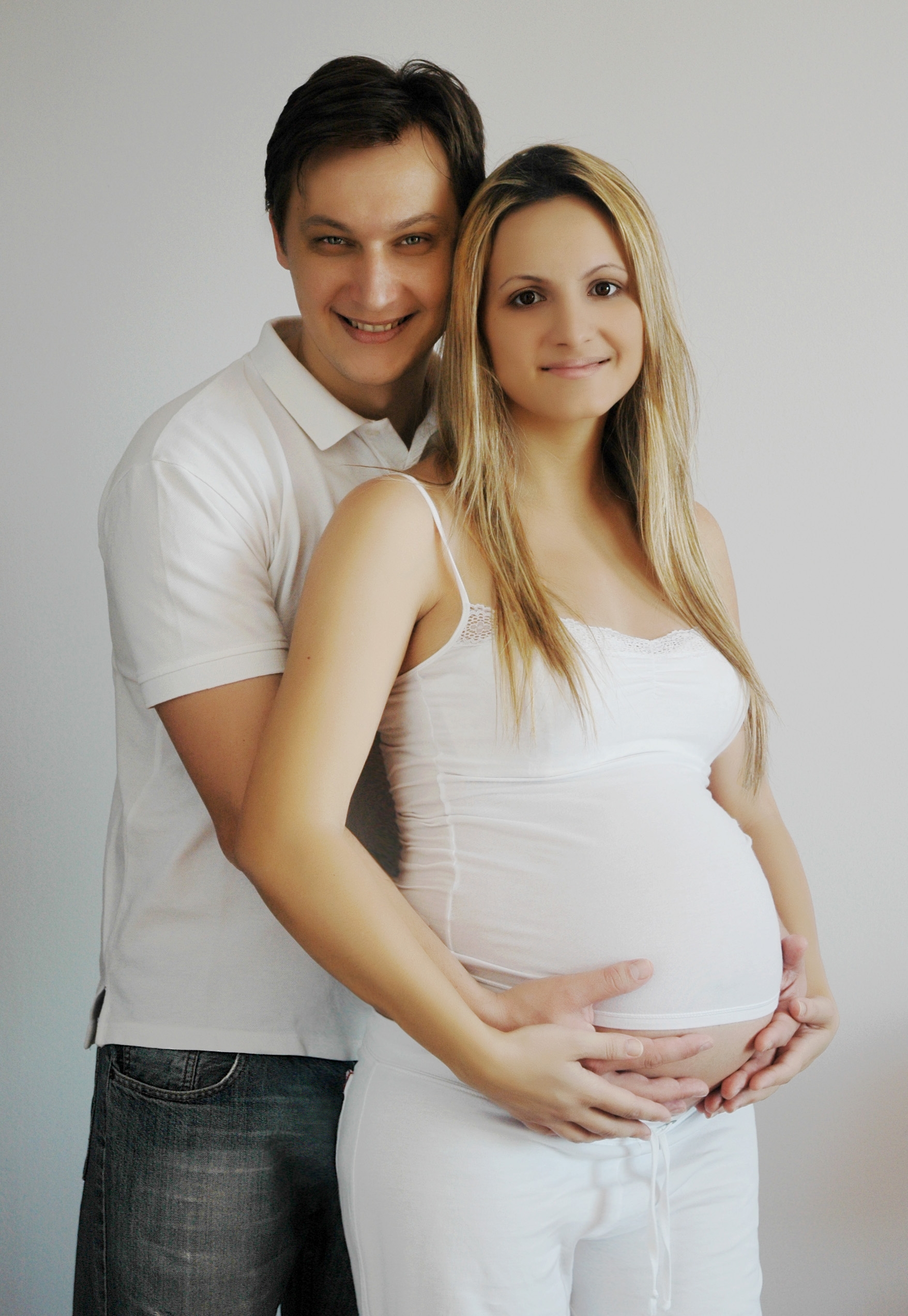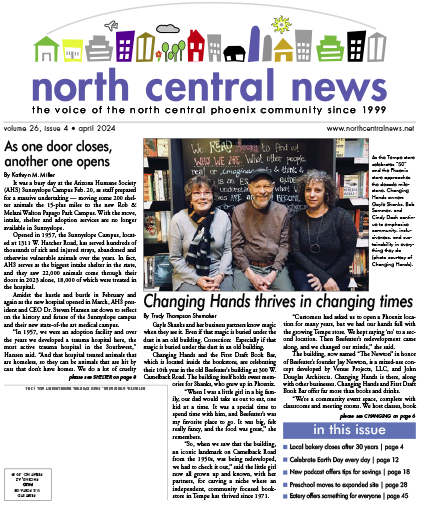When Robin Allen, medical office manager, started working at Fellowship Square in Phoenix last April, she noticed that the Parkinson’s patients did not know each other.
She decided to create a Parkinson’s support group, which was launched in July 2016.

Patient Jean Stover and Outpatient Physical Therapist Julian Manaloto work on strength and movement exercises as part of a new globally recognized therapy program for those with Parkinson’s, now being offered at Christian Care Phoenix Outpatient Rehab (photo courtesy of Fellowship Square Phx).
She then noticed that some of the patients were participating in therapy programs at other locations, but it was difficult for them to find transportation. Allen began trying to find a way to create a therapy program on the Christian Care campus.
As a result, Christian Care Phoenix Outpatient Rehab located at 11802 N. 19th Ave. is now certified to offer a globally recognized program to help Parkinson’s disease patients. LSVT Global Inc. pioneered two programs: LSVT LOUD and LSVT BIG, which are clinically proven methods for improving communication and movement in individuals with Parkinson’s disease.
Now, two therapists at the clinic—Julian Manaloto, PT, DPT, CSCS and Stacy Bolar, M.S. CCC-SLP—have become certified, and BIG & LOUD is being offered on campus.
The “big” portion of the program is the physical therapy piece that uses the principles of exaggerated movements to address limb movements. It has been found to increase gait speed, balance and quality of life.
The “loud” portion is the speech piece; it teaches patients to use their vocal chords in a strong and forceful manner. This therapy addresses the causes of speech problems so that patients with Parkinson’s disease can make themselves understood.
Manaloto, outpatient physical therapist, started his work at Christian Care Health Center in May of 2016, and he is now in charge of the “big” portion of the program. “This program is important because patients with Parkinson’s lack and lose the ability to move and plan their movements. By losing that movement, they get significantly rigid and their balance isn’t great. We try to make these patients move as ‘big’ as they possibly can to overcome the rigidity,” Manaloto explains.
Both Allen and Manaloto said they anticipate that the program will produce great results.
“I’ve probably used this on four patients so far. It has definitely brought some significant changes. For example, I’ve seen these patients be able to turn into their chairs and their walkers without being shaky and unsteady,” Manaloto said.
Community patients are invited to be part of this therapy as well; they do not have to be residents of Fellowship Square. The Parkinson’s support group, which meets on the third Wednesday of each month at 1 p.m., is also open to community patients. For more information about these programs, call Robin Allen at 602-443-5447.









































